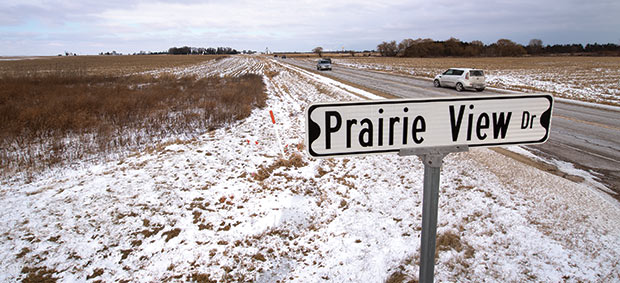Bill would curtail deadline for filing lawsuits following projects
By: Erika Strebel, [email protected]//January 23, 2018//
Bill would curtail deadline for filing lawsuits following projects
By: Erika Strebel, [email protected]//January 23, 2018//

In the summer of 2010, a 13 1/2-ton concrete façade panel fell off the O’Donnell Park parking garage in downtown Milwaukee, killing the 15-year-old Jared Kellner and injuring Amy and Eric Wosinski just as they were on their way to the annual Summerfest music festival.
When Kellner’s estate and the Wosinskis sued the following year, many believed they would be barred by Wisconsin’s construction statute of repose from pursuing their claims against the parking garage’s builders.
This statute, first enacted in 1973, shields builders, contractors and others from personal-injury lawsuits over allegations of negligent design. It bars recovery against anyone involved in a particular construction project if an alleged injury related to the project occurred more than 10 years after the work was substantially complete.
In the case of O’Donnell parking garage, the work there had been finished more than 20 years before the panel fell. That made it possible at least that any resulting lawsuit would have been dead on arrival.
Fortunately for the plaintiffs, Kellner’s lawyer – Al Foeckler of the Brookfied-based firm Cannon & Dunphy – was able to argue successfully that his clients should be able to take advantage of a legal exception to the 10-year rule. The exception he cited applies in cases in which in can be shown that a defect was deliberately concealed.
The O’Donnell Park case was not the first that had Foeckler fighting the state’s construction statute of repose. Time and again when he has taken on these sorts of disputes, he has found that few people outside construction and legal circles are aware of the statute’s existence.
“The general public was shocked that something like that existed in the law, that someone who negligently built something could escape liability simply because of the passage of time,” Foeckler said.
A bill now before lawmakers would reduce the construction statute of repose’s deadline from 10 years to six.
One big backer of the proposed change is the Wisconsin Builders Association, which represents homebuilders throughout the state. The Madison-based group provided written testimony at a recent public hearing on the proposal, contending that reducing the window for lawsuits would give builders, who are often defendants in lawsuits, certainty and control over their exposure to liability and reduce the cost of investigating allegations.
If lawmakers now succeed in curtailing the statute of repose, contractors would be able to stop worrying sooner about whether their work on previous projects would expose them to lawsuits.
They’d also have less time to be held liable for negligent designs following the completion of a project, said the defense lawyer Travis Rhoades of Crivello Carlson.
Rhoades said the proposal would not eliminate any of the ways plaintiffs now have to obtain redress for injuries. Even if they ended up being barred by the statute of repose by filing a certain type of claim, they might still be able to take legal action by invoking Wisconsin’s safe-place statute.
Even so, the proposed curtailment of the statute of repose doesn’t sit well with Foeckler. He said the change, if ultimately adopted, would send the wrong message.
“I think the Legislature should focus on trying to make things safer as opposed to protecting the worst of the worst,” he said. “Liability should be there so (contractors) know they can’t cut corners – they can’t do what they did in O’Donnell Park, which was to cut corners.”
The proposal to modify the construction statue of repose is just one in a package of various so-called tort reforms that conservative lawmakers are pushing this year. Others would touch on everything from the state’s rules for discovery proceedings to the interest that can be charged on overdue insurance claims.
One of the authors of the bill, Rep. Mark Born, has said he wants to make sure the rules governing lawsuits are clear. He has argued that plaintiffs and defendants alike should be able to have reasonable expectations about the time and money they will have to spend to get a fair hearing.
The Assembly Committee on Judiciary held a public hearing on the bill on Jan. 4. Although the provision dealing with the construction statute of repose has garnered some attention, it was not the main subject of debate then.
Much of the back-and-forth was instead about proposals calling for an overhaul of the state’s civil-litigation rules and an increase in the interest rate charged to insurers for failing to pay overdue-insurance claims, among other things.
Although seemingly unrelated to construction, those parts of the bill could still make a big difference for contractors.
Fred Strampe, a lawyer out of Milwaukee who spoke in favor of the bill on behalf of Wisconsin civil-defense lawyers, said the proposed limitations could help lower how much construction companies spend to comply with discovery requests during litigation.
Even small construction disputes, he said, can involve thousands of documents. And having to produce those documents is not cheap.
“Pretrial discovery is one of the primary drivers of those costs,” Strampe said. “It’s not unusual for businesses to spend millions of dollars in pretrial discovery.”’
Others testified that the state’s discovery rules are being abused to the detriment of businesses big and small, inflating their legal costs.
“It’s not just, ‘Produce this document,’” said Mark Behrens, a representative of the American Tort Reform Association. “It’s, ‘I want this document in a certain format so I can manipulate it just like the person who created it. ’ You can very easily get into complicated issues.”
Legal News
- State Bar leaders remain deeply divided over special purpose trust
- Former Wisconsin college chancellor fired over porn career is fighting to keep his faculty post
- Pecker says he pledged to be Trump campaign’s ‘eyes and ears’ during 2016 race
- A conservative quest to limit diversity programs gains momentum in states
- Wisconsin prison inmate pleads not guilty to killing cellmate
- Waukesha man sentenced to 30 years for Sex Trafficking
- 12-year-old shot in Milwaukee Wednesday with ‘serious injuries’
- Milwaukee man convicted of laundering proceeds of business email compromise fraud schemes
- Giuliani, Meadows among 18 indicted in Arizona fake electors case
- Some State Bar diversity participants walk away from program
- Wisconsin court issues arrest warrant ‘in error’ for Minocqua Brewing owner
- Iranian nationals charged cyber campaign targeting U.S. Companies
WLJ People
- Power 30 Personal Injury Attorneys – Russell Nicolet
- Power 30 Personal Injury Attorneys – Benjamin Nicolet
- Power 30 Personal Injury Attorneys – Dustin T. Woehl
- Power 30 Personal Injury Attorneys – Katherine Metzger
- Power 30 Personal Injury Attorneys – Joseph Ryan
- Power 30 Personal Injury Attorneys – James M. Ryan
- Power 30 Personal Injury Attorneys – Dana Wachs
- Power 30 Personal Injury Attorneys – Mark L. Thomsen
- Power 30 Personal Injury Attorneys – Matthew Lein
- Power 30 Personal Injury Attorneys – Jeffrey A. Pitman
- Power 30 Personal Injury Attorneys – William Pemberton
- Power 30 Personal Injury Attorneys – Howard S. Sicula









